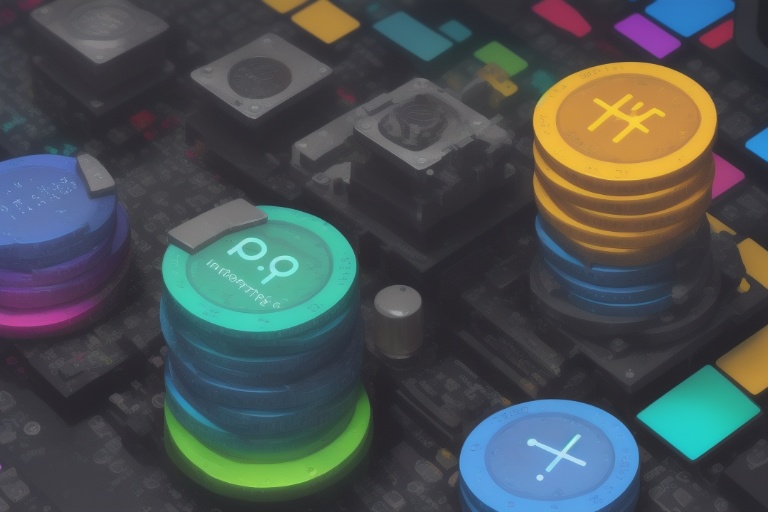Artificial intelligence (AI) has increasingly become a fixture in contemporary society, touching every facet of our daily routines and promising to usher in groundbreaking changes across numerous industries. Transportation, healthcare, and now, the legal sector are experiencing the ripple effects of AI's transformative capabilities. This discussion critically examines the escalating debate about AI's potential to supplant human roles within the legal sphere, most notably the role of the paralegal.
Artificial intelligence (AI) has increasingly become a fixture in contemporary society, touching every facet of our daily routines and promising to usher in groundbreaking changes across numerous industries. Transportation, healthcare, and now, the legal sector are experiencing the ripple effects of AI's transformative capabilities. This discussion critically examines the escalating debate about AI's potential to supplant human roles within the legal sphere, most notably the role of the paralegal.
AI's Impact on the Legal Profession
The legal profession has always been one that relies heavily on the intellect and discernment of its practitioners. AI's rise brings both excitement and apprehension, particularly regarding its ability to conduct tasks traditionally reserved for paralegals. Among its most notable features is AI's capacity to handle and analyze data with efficiency and precision that far exceed human capabilities. This aptitude for management and synthesis of large datasets is reshaping how legal work is done, automating tasks such as document review, legal research, and even some aspects of due diligence.
However, one must contemplate whether AI, for all its sophistication, can exhibit the nuanced judgment, decision-making prowess, and ethical considerations intrinsic to the role of a legal assistant. Amidst AI's analytical might lie questions about its proficiency in nuanced task execution, where human judgment has long reigned supreme.
The Human Element in Legal Services
At the core of legal services lie interpersonal skills, which encompass effective communication with clients, witnesses, and colleagues within the legal ecosystem. One might question if AI can truly master the art of empathy, understanding, and the subtle art of persuasion that are so crucial in legal settings. There is a need for professionals who can interpret the nuances of legal language, negotiate delicate issues with tact, and above all, maintain stringent standards of client confidentiality.
AI and Paralegal Tasks: A Synergistic Relationship
Although it might seem that technology is encroaching on every domain of expertise, the nuanced roles such as that of paralegals suggest a different kind of progression. Current AI technology excels in quantitative and analytical domains but still lags in areas requiring emotional intelligence and profound legal insight. As such, rather than viewing AI as a competitor to the paralegal, it is more realistically seen as a complementary tool that enhances a paralegal's capabilities. In routine tasks that currently consume a substantial amount of time for legal professionals—like sorting and analyzing documents—AI can offer invaluable assistance, freeing paralegals to focus on more strategic activities that leverage their unique, human skill sets.
Even with technology's ever-advancing nature, it's evident that AI isn't yet positioned to fully replace the paralegal. Instead, there's potential for a future in which AI and humans work collaboratively, generating a legal landscape where technology serves to redefine efficiency, and the human workforce thrives by exercising irreplaceable skills and judgments.
Looking Ahead: The Synergy Between AI and Human Expertise
For now, and the foreseeable future, AI appears destined to play a supporting role in the legal field. This integration promises an opportunity for legal practices to harness AI's processing power to increase productivity and accuracy, while human paralegals capitalize on their adaptability, nuanced understanding, and ethical judgement. In constructing the legal workspace of tomorrow, technology will not edge out humanity but partner with it to create a more dynamic and efficient environment for legal proceedings.
The intricacies of AI's involvement in professional roles, especially within the legal framework, cannot be overstated. As technology continues to advance, it is paramount to engage continuously in discussions about its appropriate applications and the ethical considerations that follow. For those committed to the forefront of AI and machine learning trends, it's essential to vigilantly track the ever-evolving abilities of these technologies. Legal professionals, too, must stay informed on the potential that AI holds for their field—both the enhancements it offers and the limitations it imposes.
The integration of AI into the realm of paralegals stands as an exemplar of this burgeoning relationship between man and machine. It's an intersection filled with potential, provoking thought, debate, and ultimately, leading us to a more forward-thinking and interconnected future. When harnessing both the power of AI and the enduring strength of human judgment, the legal profession may well strike a balance that will set a precedent for other sectors to emulate. Our readership, which spans those both versed and new to the sphere of AI and machine learning, will find this exploration of AI's impact on the legal profession to be not just enlightening but indicative of broader trends in the workforce evolution.
Information for this article was gathered from the following source.




